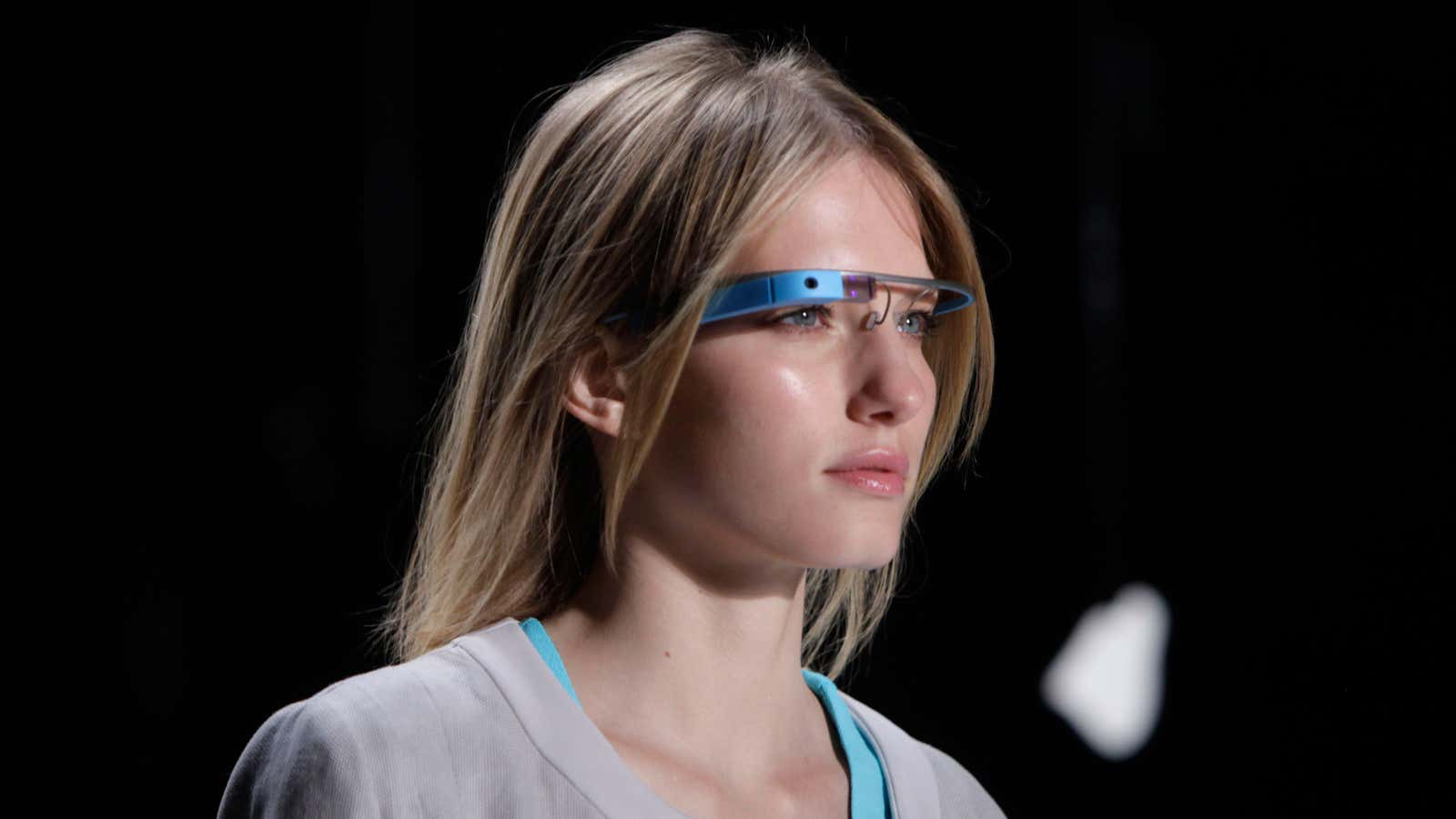Google Glass, the futuristic eyewear that’s been the subject of ridicule and privacy concerns, is “graduating” from the search giant’s experimental X wing.
Tony Fadell, best known as the father of Apple’s once-ubiquitous iPod, will oversee the new unit, with Glass head Ivy Ross reporting to him. Fadell joined Google last year when it acquired his smart thermostat startup Nest—which he’ll continue to oversee–for $3.2 billion. Google reps declined to comment.
Glass made a splashy debut at Google’s developer conference in 2012, when skydivers sporting the heads-up displays leapt out of the sky for a live demo.
But enthusiasm for the ambitious project subsequently faded as Google failed to provide a firm timeline for a consumer version. The pricey $1,500 early versions, meanwhile, were largely limited to an elite subset: software developers. As consumers worried about the privacy implications of face-mounted cameras capable of continuous recording, backlash developed against the so-called “Explorers,” later dubbed ”Glassholes.”
Google is hoping to make Glass cool again by cozying up with the fashion world, including partnerships with Diane von Furstenberg and Luxottica, the eyewear giant (that is also teaming up with Intel to develop hi-tech smart glasses).
But perhaps more ominous is the fact that developers are also losing interest, with many abandoning their Glass-related projects or turning their attention to enterprise applications. When Reuters polled 16 Glass developers last fall, nine said they’ve stopped working on their projects due to limitations with the device or user base. In October, Twitter ended up pulling its Glass app as well.
That’s not to say Glass will be a total failure. Given that Fadell once had the magic touch with the iPod, it’s possible Glass still has a future in the consumer market. But it’s the workplace that has embraced the technology’s potential. Last year, Google launched Glass at Work, a program that will continue selling units to businesses when it ends sales through the Explorer program later this month. The head-worn display has been making its way into operating rooms, an obvious place where technology could help humans at work. And police departments, from the NYPD to Dubai’s force, are also looking into equipping their officers with Glass.
